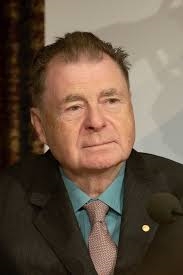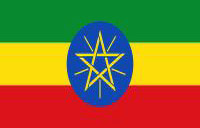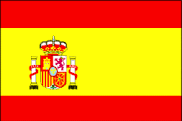
Richard F. Heck Ph.D.
Nobel Prize in Chemistry 2010
Nobel co-recipients Ei-ichi Negishizz, Akira Suzuki
Physical organic chemist. Palladium-catalyzed cross-coupling reaction. Sole author - 7 consecutive papers. Heck reaction: important concept, tool for organic and medicinal chemists; fuorescence labeling of DNA bases - sequencing DNA/Genome. Thinner computer screens in future. "Great art in test tube."
Growing orchids in early teens lead to passion for chemistry.
Biography
By Dan Lednicer Ph.D., Organic/Medicinal Chemist
The Nobel Prize in chemistry has not infrequently been awarded for work that has led to the development of new reagents and techniques that have made possible hitherto difficult organic chemistry transforms. Awards for such new reagents are, more often than, not given until such time that the new method has come to be used routinely in the laboratory; this may be years after the original invention. The 2010 Nobel Prize was awarded for such a development. The prize was given jointly to Richard F. Heck, Ei-ichi Negishi and Akira Suzuki for "for palladium-catalyzed cross couplings in organic synthesis".
Nobel Laureate Richard F. Heck was born in Springfield, Massachusetts in 1931. After he graduated from high school he went all the way across the country for his advanced education enrolling at the University of California at Los Angeles (UCLA). There he obtained a Bachelor's degree in 1952. He stayed on at UCLA where he conducted graduate research in physical organic chemistry in the lab of Saul Winstein. Heck received his doctorate in record time in 1954. He was then awarded one of the then-new National Science Foundation Post-Doctoral Fellowships; he used that to travel to Zurich in Switzerland where he joined Prelog's group at the ETH (Swiss Federal Institute of Technology). After a year in Zurich he returned to UCLA for further work in the area of his thesis investigation. In 1956, he took a position in the research laboratories of the then-Hercules Powder Company (Currently Ashland Co) in Wilmington, Delaware. In the late 1960s he undertook a research program that involved organometallic compounds, that is molecules in which a metal is linked to a carbon atom in an organic molecule. This line of research led to the development of palladium catalyzed cross coupling reactions. Results of those studies appeared in 1968 in a series of seven papers in the prestigious Journal of the American Chemical Society. The fact that Heck was sole author on each would indicate that he had carried out all the laboratory work on his own. In 1971 Richard Heck left Hercules to become Professor in the Chemistry Department of the University of Delaware. There he continued his investigations on organometallic chemistry. He retired in 1989 as Willis F. Harrington Professor Emeritus. He and his wife, whom he had first met in Manila, then moved to the Philippines where they were living when he was notified of the award of the Nobel Prize. In 2005 Heck received the Carothers Award for Creative Invention, a prize given for "outstanding contributions and advances in industrial applications of chemistry". He received the Herbert Brown Award for Creative Research in Synthetic Methods in 2006. In 2010 he received an honorary doctorate from Uppsala University in 2010.
Forming a new carbon to carbon chemical bond is a crucial operation in the synthesis of organic compounds. This is the means by which chemists connect smaller fragments to intermediate organic molecules or for that matter for coupling large fragments. There existed only relatively few methods for carrying out such transformations as late as the middle of the twentieth century. The then-known reactions for coupling carbon atoms often involved harsh conditions; this would then require extra steps for protecting sensitive groups on the intermediate or target molecule. At the time Heck began his work, the rare elements platinum and palladium were used routinely almost solely as catalysts for adding hydrogen to double bonds. In his initial work Heck was able to couple the mercury derivative of a benzene ring to the double bond in a second compound in the presence of a full molecule of a palladium salt for each organomercury molecule. Heck subsequently refined the reaction by first replacing the carbon to mercury link in one of the fragments to be coupled by a much more readily available carbon to halogen bond as for example bromobenzene. Heck later modified the reaction by adding the palladium catalyst in the form of a complex with the phosphorus derivative triphenyl phosphine. This and several other modification allowed him to reduce the palladium catalyst to catalytic amounts. Naming a reaction after its developer comprises an outstanding compliment organic chemists pay to its originator; this accordingly applies to the inventor of the Heck cross coupling reaction. This reaction found widespread use in organic synthesis by providing a hitherto difficult means for creating carbon to carbon bonds. Heck went on to investigate the use of coupling reactions for compounds that contained triple bonds; he also developed a method for coupling benzenes substituted with a halogen atom with carbon monoxide to give carboxylic acids.
His wife's death preceded his death. Richard Heck passed away on 9 Oct 2015 in Manila, Philippines.
In Memorium, University of Delaware.
Richard F. Heck, Chemist, Dies at 84; Revolutionized Drug Development by By Nicholas ST. Fleuroct. 15, 2015, New York Times Obituary.
UCLA awards Glenn T. Seaborg Medal to alumnus for feats in chemistry.
University of Delaware, Richard F. Heck Award and Lectureship. Please scroll down that page. University of Delaware, Richard F. Heck Award and Lectureship.
Discover Your Abilities and Aspirations!
 $10 $25 $50 $100 Other
$10 $25 $50 $100 Other
Tax Exempt 501(c)3 Non-Profit Organization
Any Currency
“…the peace that is found in libraries and laboratories…” - Louis Pasteur
Copyright © 2023 Ganga Library Inc. All Rights reserved.;

Photo: Holger Motzkau/Wikimedia Commons
Name: Richard Fred Heck
Birth: 15 August 1931, Springfield, MA, USA
Death: 9 October 2015, Manila, Philippines
Institution: University of Delaware, USA
Award: "for palladium-catalyzed cross couplings in organic synthesis"
Subject: Organic chemistry
Portion of cash: 1/3
Biography
Books
Defining Moment
Death
Doctoral Advisor: Saul Winstein
Family
Health
History of Discovery
Hobbies
Honoring Richard Heck
Images
Patents
Retirement
Quotations
Sadness
Videos
Youth













